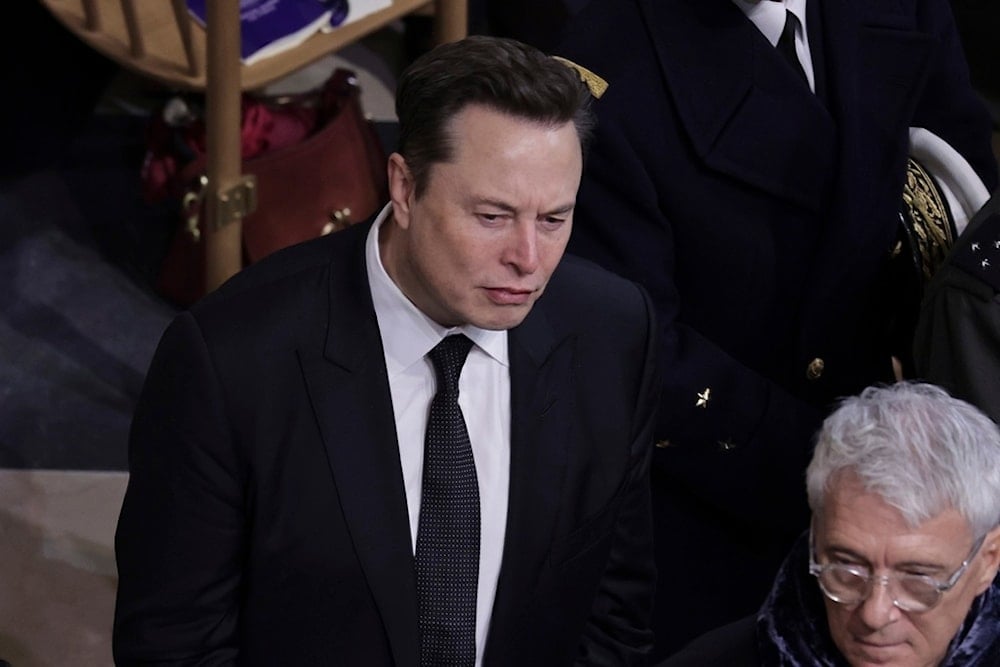Elon Musk's AfD endorsement sparks resignation at German newspaper
Recent polls place the AfD in second position, potentially complicating efforts by centrist parties to form a majority government.
-

Elon Musk attends the formal reopening of France's iconic Notre Dame Cathedral on Saturday, December 7, 2024 in Paris. (Pool via AP)
Elon Musk's endorsement of Germany's far-right Alternative for Germany (AfD) party in an opinion piece published Saturday by Welt am Sonntag has stirred significant controversy. The article led to the resignation of the newspaper's opinion editor, Eva Marie Kogel, and ignited debates about the role of journalism and political commentary.
In the piece, the billionaire expanded on a recent statement made on his social media platform, X, where he asserted, "only the AfD can save Germany." Musk also dismissed the labeling of the party as extremist, arguing, "The portrayal of the AfD as right-wing extremist is clearly false, considering that Alice Weidel, the party's leader, has a same-sex partner from Sri Lanka! Does that sound like Hitler to you? Please!"
Germany's domestic intelligence agency has classified the AfD as a suspected extremism case at the national level since 2021, highlighting the party's controversial standing in the country's political landscape. The AfD's policies include advocating for Germany to leave the European Union, seeking closer ties with Russia, and adopting a conciliatory stance toward China.
Read more: Poll shows increased support for Germany's AfD
Shortly after Musk's commentary was published, Kogel announced her resignation via X, linking to the article and signaling her disapproval. In response, Jan Philipp Burgard, the newspaper's editor-in-chief designate, and Ulf Poschardt, the incoming publisher, defended the publication of the piece. "Democracy and journalism thrive on freedom of expression. This includes dealing with polarizing positions and classifying them journalistically," they told Reuters.
Burgard also issued a rebuttal to Musk's claims, which was published alongside the original commentary. While he acknowledged Musk's criticism of Germany's political situation, Burgard dismissed his conclusion that the AfD is the solution, describing it as "fatally false" and referencing the party's controversial policies and positions.
Musk defended his right to comment on German politics, citing his "significant investments" in the country, such as Tesla's Berlin-based Gigafactory. His remarks come at a pivotal moment, as Germany prepares for national elections on February 23, following the collapse of Chancellor Olaf Scholz's coalition government.
Musk Controversy
Recent polls place the AfD in second position, potentially complicating efforts by centrist parties to form a majority government. However, Germany's mainstream political factions have vowed to exclude the AfD from any coalition agreements.
The piece has sparked widespread discussion, with hundreds of comments posted in its immediate aftermath. Critics have focused on Musk's framing of extremism and his alignment with a party that remains divisive within German politics. As Burgard noted, "Musk's diagnosis is correct, but his therapeutic approach... is fatally false."
Read more: German Chancellor Candidate claims AfD seeks peace in Ukraine

 3 Min Read
3 Min Read








